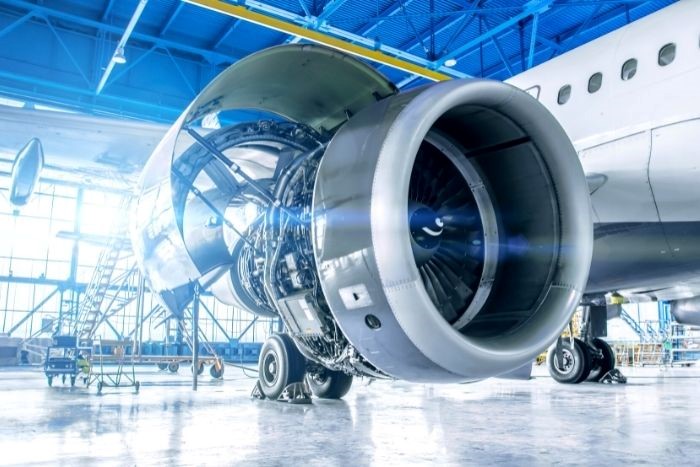The aviation industry has witnessed remarkable transformations, particularly in the realm of avionics. The advent of modular avionics systems has brought about significant advancements, reshaping how aircraft operate. These systems, pivotal in modern aviation, have simplified complex processes, enhancing both efficiency and safety. As the aviation landscape continues to evolve, understanding the intricacies of these systems becomes crucial, especially for exporters and importers dealing with aeronautical components.
In today’s competitive market, having a comprehensive knowledge of modular avionics systems is indispensable. These systems not only optimize aircraft performance but also play a critical role in the maintenance and development of aviation technology. This article delves deep into the world of modular avionics, shedding light on their importance, functionality, and future prospects.

What are Modular Avionics Systems?
Modular avionics systems refer to a collection of interconnected electronic devices and software applications that manage an aircraft’s various functions. These systems are designed to be adaptable, allowing for easy upgrades and maintenance. By utilizing a modular approach, each component can be independently replaced or updated, ensuring the aircraft remains at the forefront of technological advancements.
Components of Modular Avionics
The primary components of a modular avionics system include:
- Flight Management Systems (FMS): These systems assist pilots in navigation, flight planning, and optimizing fuel efficiency.
- Communication Systems: Ensuring seamless communication between pilots and ground control.
- Navigation Systems: Utilizing GPS and other technologies to provide accurate positioning and guidance.
- Display Systems: Presenting critical flight data to pilots in an easily interpretable format.
Advantages of Modular Avionics Systems
Enhanced Flexibility
One of the standout features of modular avionics systems is their flexibility. By allowing individual modules to be upgraded or replaced, airlines can ensure their fleet is always equipped with the latest technology. This adaptability reduces downtime and maintenance costs, offering a significant advantage over traditional avionics systems.
Cost-Effectiveness
Investing in modular avionics systems proves to be cost-effective in the long run. The ability to upgrade specific components without overhauling the entire system results in reduced operational costs. Moreover, these systems often lead to improved fuel efficiency and reduced emissions, aligning with global sustainability goals.
Improved Safety
Safety remains a top priority in aviation. Modular avionics systems enhance safety by providing real-time data and diagnostics. Pilots receive accurate information, enabling them to make informed decisions swiftly. Additionally, these systems can detect potential faults before they escalate, ensuring timely interventions.
The Role of Modular Avionics in Modern Aircraft
Modern aircraft rely heavily on modular avionics systems for their operations. From managing flight controls to ensuring efficient engine performance, these systems are integral to a plane’s functionality. Their adaptability ensures that aircraft can meet changing regulatory standards and technological advancements without significant overhauls.
Integration with Other Systems
One of the defining features of modular avionics systems is their ability to integrate seamlessly with other systems. Whether it’s integrating with aerospace data logging systems for enhanced data analysis or collaborating with aerospace electronics development cycles, these systems ensure holistic aircraft management.
For more insights on aerospace electronics development cycles, visit this link.
The Future of Modular Avionics Systems
Technological Advancements
The future of modular avionics systems looks promising, with rapid technological advancements on the horizon. Innovations in AI and machine learning are set to revolutionize these systems, offering predictive maintenance and enhanced automation. Such advancements will further streamline operations, reducing pilots’ workload and improving overall flight efficiency.
Environmental Impact
As the aviation industry focuses on reducing its carbon footprint, modular avionics systems play a pivotal role. By optimizing fuel consumption and enhancing flight paths, these systems contribute significantly to sustainability efforts. Future developments will likely prioritize eco-friendly technologies, ensuring aviation aligns with global environmental goals.
Challenges Facing Modular Avionics Systems
Integration with Legacy Systems
While the benefits of modular avionics systems are undeniable, integrating them with legacy systems poses challenges. Airlines must ensure compatibility between new and old systems, requiring significant investment and expertise. However, the long-term benefits often outweigh these initial challenges.
Regulatory Compliance
Aviation is a highly regulated industry, and ensuring compliance with global standards is paramount. Modular avionics systems must adhere to these standards, necessitating regular updates and checks. Collaborating with industry experts and regulatory bodies ensures seamless compliance.
For more details on aerospace systems engineering, explore this resource.
Conclusion
In conclusion, modular avionics systems are revolutionizing the aviation industry. Their adaptability, cost-effectiveness, and safety enhancements make them indispensable in modern aircraft. As technology advances, these systems will continue to evolve, offering even greater benefits to the aviation sector. For exporters and importers dealing with aeronautical components, understanding these systems is crucial, ensuring they remain at the forefront of industry advancements.

FAQs on Modular Avionics Systems
What makes modular avionics systems different from traditional systems?
Modular avionics systems offer flexibility and adaptability, allowing for individual component upgrades without overhauling the entire system, unlike traditional systems.
Are modular avionics systems cost-effective?
Yes, in the long run, these systems reduce operational costs by allowing specific component upgrades and improving fuel efficiency.
How do modular avionics systems enhance safety?
They provide real-time data and diagnostics, enabling pilots to make informed decisions swiftly and detect potential faults before they escalate.


